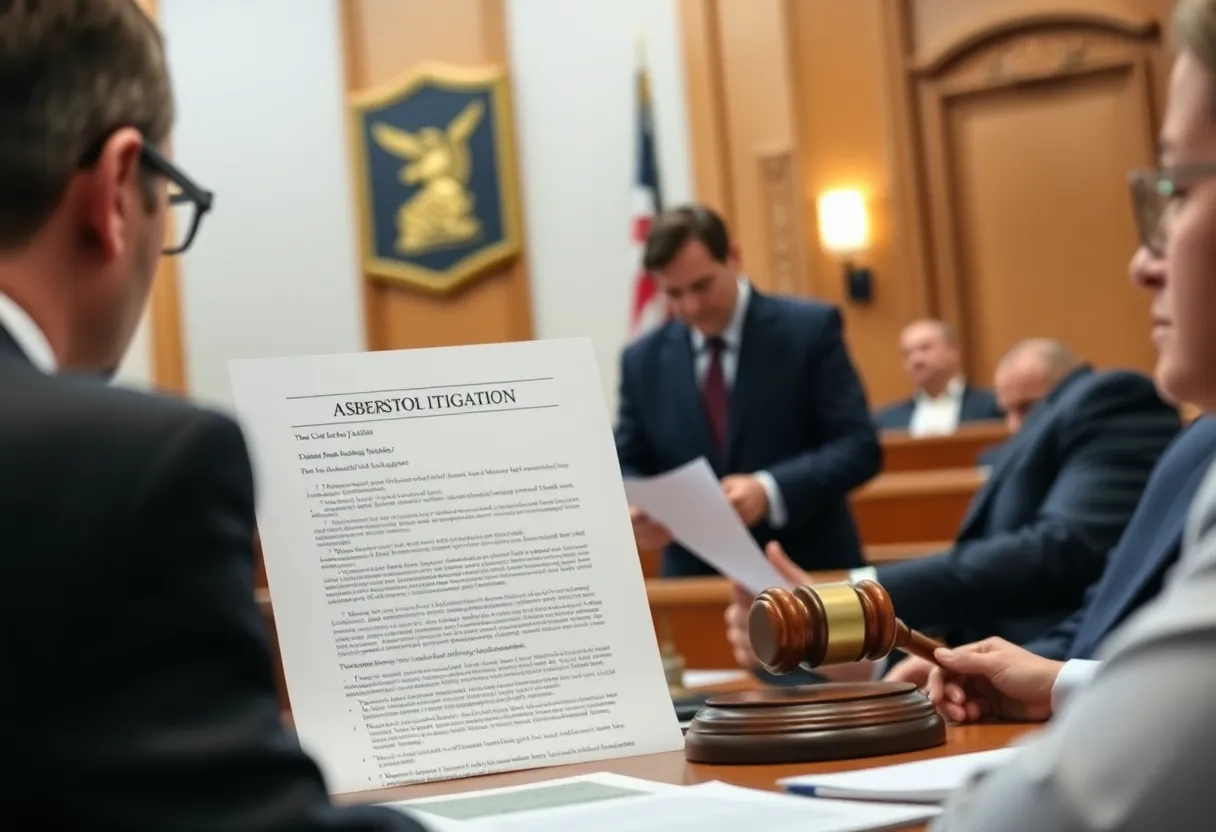News Summary
The Fourth Circuit’s recent ruling upholds a Chapter 11 reorganization plan related to asbestos manufacturing, marking a significant win for debtors.
Fourth Circuit Upholds Asbestos Plan: A Good Faith Victory for Debtors
In a recent decision, the Fourth U.S. Circuit Court of Appeals has upheld a Chapter 11 reorganization plan proposed by certain asbestos manufacturing debtors, ruling that the plan was made in good faith. This landmark decision affirms the ruling of the Western District of North Carolina court, effectively marking a significant win in the ongoing battle over asbestos-related liabilities.
The Ruling Unveiled
The court’s ruling came after a series of objections raised by Truck Insurance Exchange, the liability insurance provider for the debtors. Truck’s objections were based on multiple grounds, including concerns regarding fraud and the adequacy of the plan in satisfying statutory requirements. However, the Fourth Circuit dismissed these objections, noting that the unique circumstances of the case alleviated potential concerns about fraudulent practices. Judge G. Steven Agee, leading the opinion of the panel, expressed confidence in the district court’s earlier conclusions.
Concerns and Concurring Opinions
While the ruling was largely favorable for the asbestos manufacturers, Judge A. Marvin Quattlebaum added a concurring opinion, expressing unease regarding some arguments made by the debtors. His remarks underscore the complexity and sensitivity surrounding cases related to asbestos, where the stakes for claimants and insurers are inherently high. Despite these concerns, the district court’s decision was largely upheld.
A Unique Legal Challenge
The backdrop of this case involves ongoing litigation against Kaiser Gypsum Company and Hanson Permanente Cement, both defendants in numerous asbestos lawsuits. Their reorganization plan received unanimous support from claimants and other involved parties—a significant factor that likely influenced the court’s decision.
The Supreme Court Intervenes
In a twist, the U.S. Supreme Court reversed previous district court and Fourth Circuit rulings, asserting that Truck was indeed a party in interest to the plan. The case was remanded with instructions to evaluate whether the district court had erred in its determination of good faith and compliance with legal requirements, as defined under 11 U.S.C. § 1129(a)(3).
The Definition of Good Faith
The Fourth Circuit has indicated that while “good faith” lacks a statutory definition, interpretations from other circuits suggest it pertains to achieving outcomes aligned with the objectives of the Bankruptcy Code. These objectives include preserving ongoing operations and maximizing property to satisfy creditors. The court reiterated that the reorganization plan resulted from extensive negotiations and was a consensual resolution of lingering liabilities.
Objections from Truck Insurance
Truck Insurance Exchange argued that the proposed plan permitted litigation of insured asbestos claims in the tort system, while preventing the same for uninsured claims. However, the Fourth Circuit determined that this strategy to maximize assets through comprehensive insurance did not equate to bad faith. Ultimately, the court found that dissatisfaction alone from Truck did not warrant the rewriting of the policy.
Addressing Fraud Concerns
Truck’s objections also focused on the absence of anti-fraud measures for insured claims. The court clarified that the rationale behind this omission was the comprehensive coverage provided by Truck. The concerns raised about potential fraud were characterized as speculative, lacking substantial evidence, thus failing to meet the threshold for valid legal objection. The court stated that the necessity for fraud protections was contextual, dependent on the unique circumstances of this case.
Ensuring Compliance with Legal Frameworks
Furthermore, Truck contended that the plan failed to meet four statutory requirements under 11 U.S.C. § 524(g). However, the Fourth Circuit disagreed, affirming that the associated Trust effectively assumed the debtors’ liabilities. Notably, the Trust was acknowledged as being partially funded by the obligations of the debtors.
The Path Forward
The Fourth Circuit’s ruling not only upholds the legitimacy of the reorganization plan but also highlights the need for continued scrutiny regarding the treatment of asbestos claims in bankruptcy proceedings. As this legal saga continues, the decisions of the courts will play a pivotal role in determining the future landscape of asbestos litigation and the rights of those affected.
Deeper Dive: News & Info About This Topic
HERE Resources
Asbestos-Contaminated Freight Causes Commotion in Hinsdale
Closure of Libby’s Asbestos Health Clinic Shakes Community
Groundbreaking Clinical Trial Offers New Hope for Mesothelioma
New Mesothelioma Cell Discovery Changes Cancer Understanding
Vital Insights for Mesothelioma Victims: Understanding Your Legal and Medical Options
Mesothelioma in Houston: A Battle Against an Aggressive Enemy
The Battle Against Mesothelioma: Wyoming’s Legal Options for Victims
The Alarming Rise of Mesothelioma Deaths in Britain: A Call for Action
New Horizons for EJ Nduka as AEW Contract Expires
Graphic Designer and Beloved Family Man Succumbs to Mesothelioma
Additional Resources
- NC Lawyers Weekly: Asbestos Bankruptcy Plan Good Faith Ruling
- Wikipedia: Bankruptcy
- Law360: After High Court Reversal, 4th Circ. OKs Asbestos Ch. 11 Plan
- Google Search: Asbestos Bankruptcy News
- Law360: Asbestos Spinoff Ch. 11 Could Upend US Law, 4th Circ. Told
- Google Scholar: Asbestos Bankruptcy
- National Law Journal: 4th Circuit Hears Asbestos Claimants’ Constitutional Challenge to Company’s Bankruptcy
- Encyclopedia Britannica: Asbestos



















